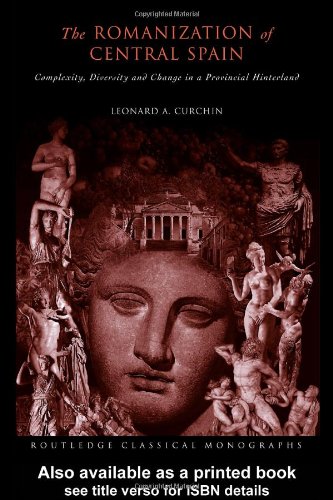

Most ebook files are in PDF format, so you can easily read them using various software such as Foxit Reader or directly on the Google Chrome browser.
Some ebook files are released by publishers in other formats such as .awz, .mobi, .epub, .fb2, etc. You may need to install specific software to read these formats on mobile/PC, such as Calibre.
Please read the tutorial at this link. https://ebooknice.com/page/post?id=faq
We offer FREE conversion to the popular formats you request; however, this may take some time. Therefore, right after payment, please email us, and we will try to provide the service as quickly as possible.
For some exceptional file formats or broken links (if any), please refrain from opening any disputes. Instead, email us first, and we will try to assist within a maximum of 6 hours.
EbookNice Team

Status:
Available5.0
35 reviews

ISBN 10: 0415285488
ISBN 13: 9780415285483
Author: Leonard A. Curchin
Curchin explores how, why and to what extent the peoples of Central Spain were integrated into the Roman Empire during the period from the second century BC to the second century AD.
He approaches the question from a variety of angles, including the social, economic, religious and material experiences of the inhabitants as they adjusted to change, the mechanisms by which they adopted new structures and values, and the power relations between Rome and the provincials. The book also considers the peculiar cultural features of Central Spain, which made its Romanization so distinctive.
Introduction
The indigenous culture
Conflict and reorganization
From hillfort to city
The changing countryside
Identity and status
Resource control and economic integration
Religious duality: dissonance or fusion?
Linguistic transformations
Life and death: the Romanization of behaviour
the romanization of central spain complexity
romanization of spain
romanization in the roman empire
romanization of hispania
romanization in the roman empire quizlet
the romanization of hispania
Tags: Leonard A Curchin, The Romanization, Central Spain, Complexity, Diversity, Change, Provincial, Hinterland